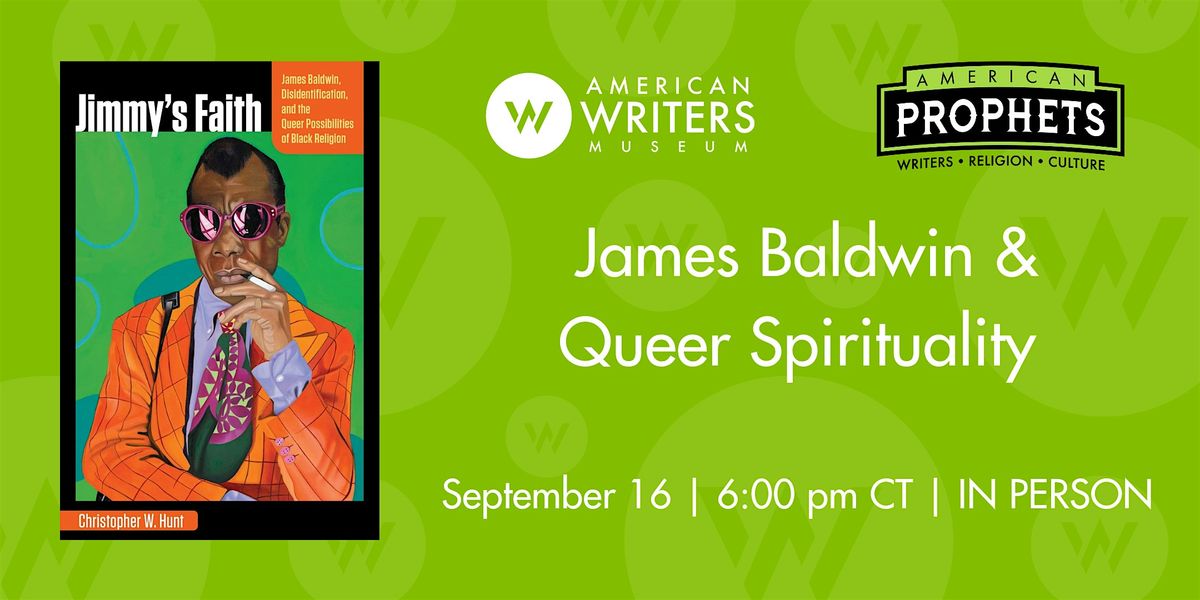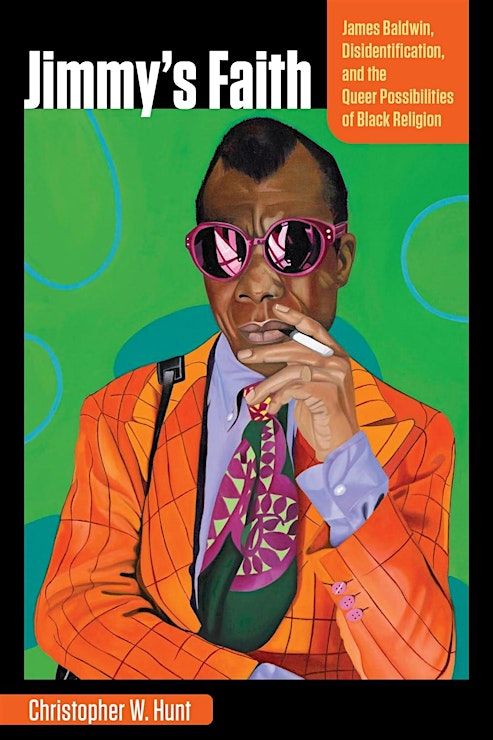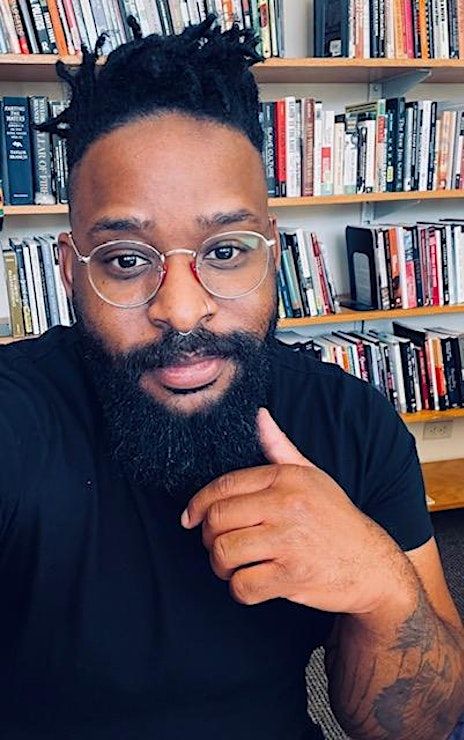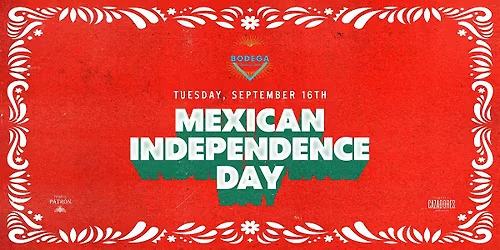
About this Event
Despite James Baldwin's disavowal of Christianity in his youth, he continued to engage the symbols and theology of Christianity in works such as The Amen Corner, Just Above My Head, and others. With his new book Jimmy's Faith: James Baldwin, Disidentification, and the Queer Possibilities of Black Religion, author Christopher W. Hunt shows how Baldwin's usage of those religious symbols both shifted their meaning and served as a way for him to build his own religious and spiritual vision.
Hunt is interviewed by Northwestern professor Ivy Wilson. Books will be available for purchase and Hunt will sign them following the program.
This is an in person program at the American Writers Museum. This program will also be livestreamed, and you can .
This program is presented in conjunction with the AWM's forthcoming special exhibit , opening November 2025. American Prophets is supported by a grant from Lilly Endowment Inc. through its Religion and Cultural Institutions Initiative.
About Jimmy's Faith:
The relationship of James Baldwin's life and work to Black religion is in many ways complex and confounding. What is he doing through his literary deployment of religious language and symbols?
Despite Baldwin’s disavowal of Christianity in his youth, he continued to engage the symbols and theology of Christianity in works such as The Amen Corner, Just Above My Head, and others. With Jimmy’s Faith, author Christopher W. Hunt shows how Baldwin’s usage of those religious symbols both shifted their meaning and served as a way for him to build his own religious and spiritual vision. Engaging José Esteban Muñoz’s theory of disidentification as a queer practice of imagination and survival, Hunt demonstrates the ways in which James Baldwin disidentifies with and queers Black Christian language and theology throughout his literary corpus.
Baldwin’s vision is one in which queer sexuality signifies the depth of love’s transforming possibilities, the arts serve as the (religious) medium of knitting Black community together, an agnostic and affective mysticism undermines Christian theological discourse, “androgyny” troubles the gender binary, and the Black child signifies the hope for a world made new. In disidentifying with Christian symbols, Jimmy’s Faith reveals how Baldwin imagines both religion and the world “otherwise,” offering a model of how we might do the same for our own communities and ourselves.

Praise for Jimmy's Faith:
"Some discuss Baldwin’s queerness, some his religious background or his criticisms of religiosity; still others separate his queerness from the 'serious work' of calling out white supremacy. Jimmy’s Faith refuses these separations, demonstrating that we do not know James Baldwin if we do not consider seriously—and simultaneously—his queerness, his Blackness, and his agnosticism." —Ashon Crawley, author The Lonely Letters and Blackpentecostal Breath: The Aesthetics of Possibility
"In Jimmy’s Faith, Christopher Hunt ushers us nearer the molten, challenging, and transfiguring core of Baldwin's life and art than we've been before. Touching with nuance and precision upon several of Baldwin's most crucial works across genres, these brilliantly intersectional readings do more than reveal, they redeem." —Ed Pavlić, author of Who Can Afford to Improvise? James Baldwin and Black Music, the Lyric and the Listeners?
"...[A] thoughtful, nuanced, and insightful examination of Baldwin at the intersection of his religious upbringing and his queerness." —Choice Reviews
DR. CHRISTOPHER W. HUNT is Assistant Professor of Religion at Colorado College, and received his PhD from the Garrett-Evangelical Theological Seminary. Hunt's work considers the relevance and meaning of Black religion for those on the margins or considered outside of traditional religious spaces.

DR. IVY WILSON (Ph.D. Yale University) teaches courses on the comparative literatures of the black diaspora and U.S. literary studies with a particular emphasis on African American culture. His book, Specters of Democracy: Blackness and the Aesthetics of Nationalism (Oxford UP), interrogates how the figurations and tropes of blackness were used to produce the social equations that regulated the cultural meanings of U.S. citizenship and traces how African American intellectuals manipulated the field of aesthetics as a means to enter into political discourse about the forms of subjectivity and national belonging. Along with articles in ESQ, Arizona Quarterly, and PMLA, his other work in U.S. literary studies includes edited volumes on James Monroe Whitfield, Albery Allson Whitman, Walt Whitman, and on the emergent scholarship in American literary and cultural studies of the “long” nineteenth century. His current research interests focus on the solubility of nationalism in relationship to theories of the diaspora, global economies of culture, and circuits of the super-national and sub-national.
Event Venue & Nearby Stays
American Writers Museum, 180 N. Michigan Avenue, 2nd Floor, Chicago, United States
USD 10.38 to USD 12.51












